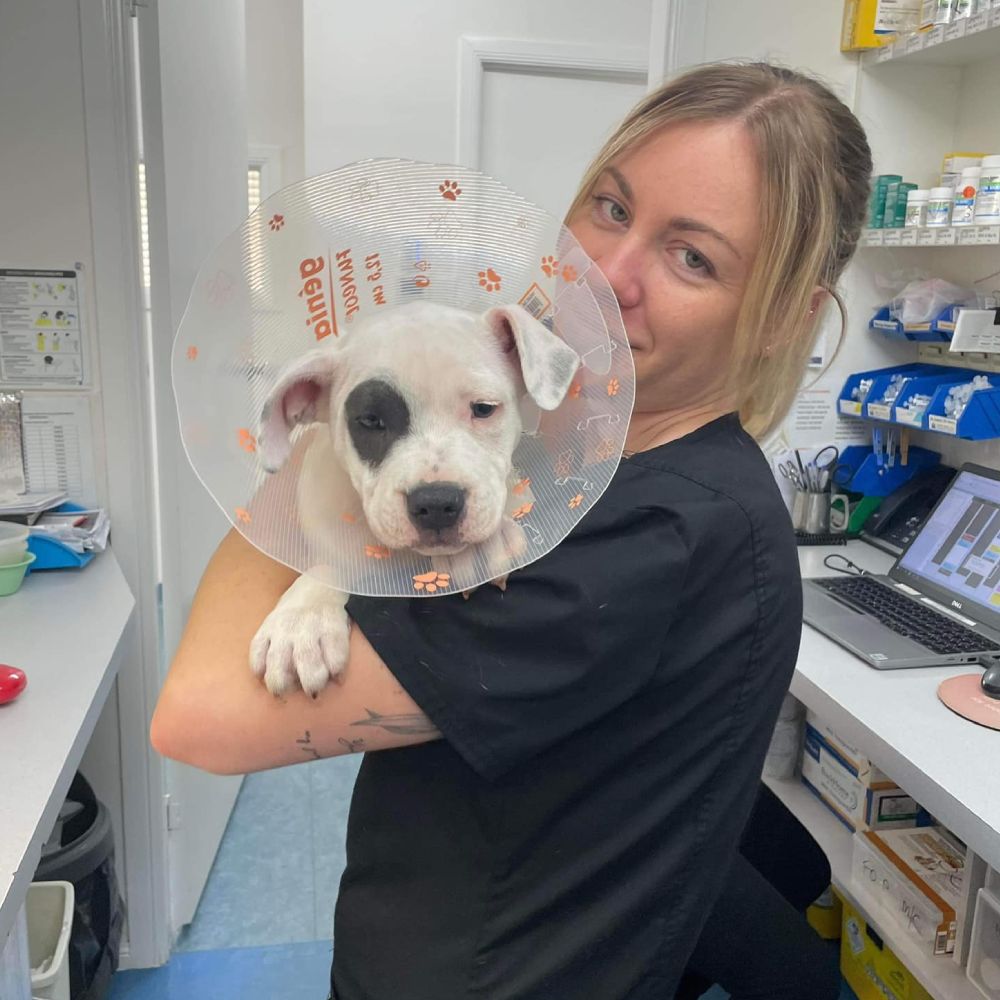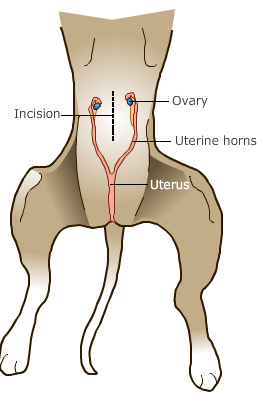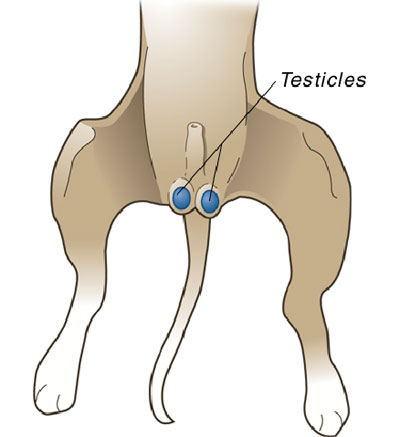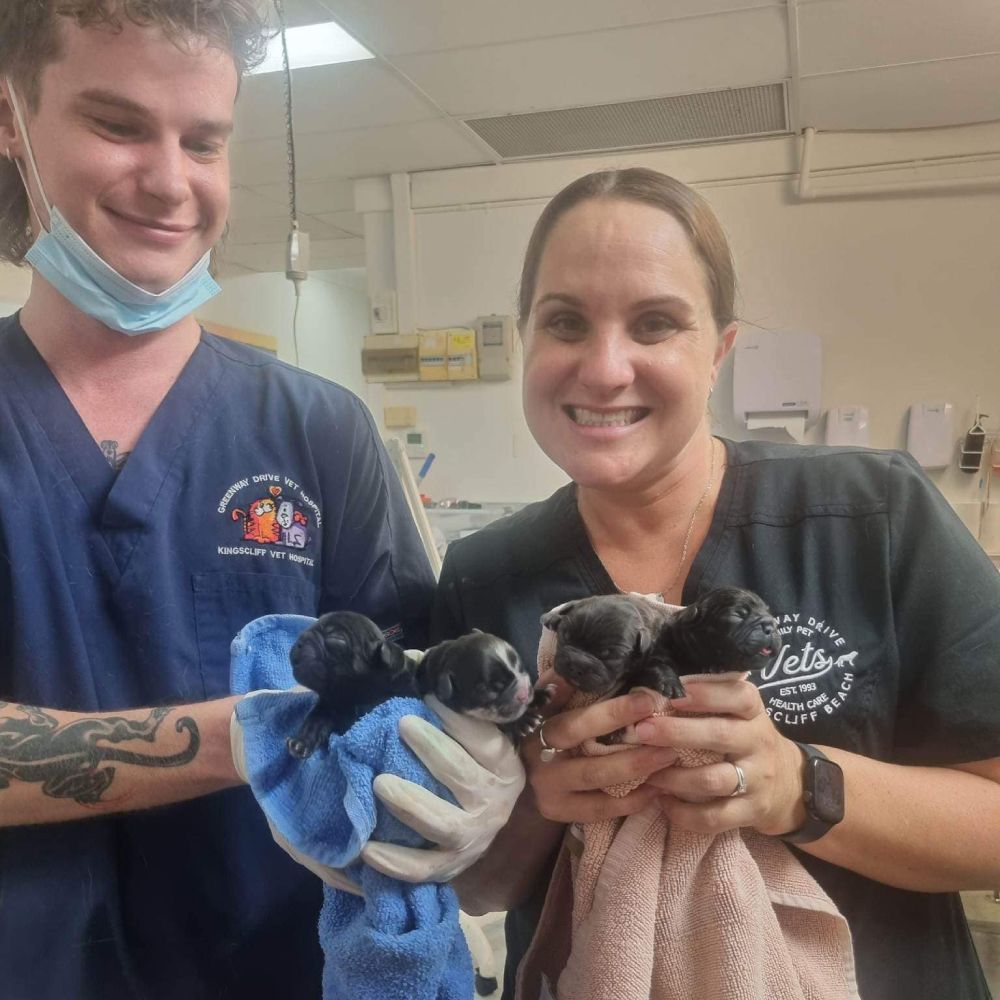Veterinary Surgical Services
Our veterinarians provide many surgical services at our hospital, ranging from routine to advanced procedures.
Because we want to ensure that our patients receive the best possible outcome, we occasionally refer them to specialists (board-certified veterinary surgeons) to perform complex operations when advanced equipment or training will be beneficial. Our veterinary team will take precautions to ensure that your pet receives a safe anaesthetic. We perform a physical exam and pre-anaesthetic testing before surgery, monitor your pet during surgery, and provide pain medication during recovery.

Desexing
When your pet undergoes its desexing procedure with us you can be confident of the highest quality care.
You can be confident because we have received the highest accreditation, “Hospital of Excellence” by the ASAVA(Australian Small Animal Veterinary Association).
This qualification has required us to achieve a level of excellence that has only be awarded to 3 other veterinary hospitals in all of New South Wales.
We offer the highest standards of anaesthesia, patient monitoring and pain management. Our strong emphasis on exceptional pain management makes us stand out from surrounding vet hospitals. We want you to know what we do to give your pet exceptional care.
Standard pain management for desexing procedures involves pre surgical medications that offer both sedation and pain relief.
This medication allows your pet to become relaxed prior to the procedure. We know that relaxed pets have a more comfortable experience while at the hospital. The importance of pain relief given prior to the surgical procedure allows the body to not respond as strongly to the surgical stimulus. This pre surgical medication also allows us to use less medication to maintain general anaesthesia during the procedure. Keeping the general anaesthesia medications at a minimum is a component of safer anaesthesia protocols. Further pain control is offered through the use of local anaesthesia surgical site block injections, CRI (continuous rate infusions) of medication delivered throughout the procedure via the IV (intravenous fluids) and NSAIDs (nonsteroidal anti-inflammatory drugs) given as an injection. Your pet also receives MLT (medical laser therapy) which enhances wound healing and also offers pain relief. When your pet is discharged from the hospital following the surgical procedure there is further pain medication given to take at home, because the pain of the surgical procedure often persists for several days afterwards.
Safety is paramount. Again, you can be assured that your pet will receive exceptional surgical and anaesthesia care. Our hospital has invested in the highest quality anaesthesia monitoring equipment available and our dedicated nursing staff are all highly trained in anaesthesia monitoring. Our equipment provides us with crucial information on how your pet is experiencing the procedure. This information allows us to make rapid and timely decisions if there is a problem. This monitoring consists of a nurse dedicated to monitoring the continuous ECG (electrocardiogram), PO2 (pulse oximetry), BP (blood pressure), patient core temperature, ETCO2 (end tidal Carbon Dioxide), Respiratory Rate and Pulse rate. That’s a lot! Rest assured that all of this gives your pet exceptional safety.
Additional care that we provide to enhance safety involves IV fluids as standard for all general anaesthesia procedures. This provides support to the cardiovascular system and also provides your pet optimum hydration. Pets recover more comfortably when they receive IV fluids.
We are pleased that you have chosen our hospital because we are dedicated to exceptional pet health care.
Spaying
Spaying your pet has many benefits. The procedure, which prevents female animals from becoming pregnant and reproducing, can help your dog or cat live a longer, healthier life. Spaying will not change your pet’s personality.
By spaying your female pet, you’re protecting her against potentially deadly diseases, including bacterial infections, reproductive tract diseases, and several types of cancer. You also won’t have to worry about her going into heat. This means avoiding the mess that often accompanies the heat cycle in female dogs and the pacing and crying that happens with female cats. In addition, spaying your pet will help control the dog and cat overpopulation problem, keeping more animals out of shelters.
Spaying, which involves removing the ovaries and uterus, is a surgical procedure and does need to be performed with the pet under anesthesia. We follow strict protocols and continually monitor your pet’s vital signs to help ensure her safety. Please see the descriptions under Anesthesia and Patient Monitoring for more information on what we do to keep your pet safe.

To set up an appointment to have your pet spayed or to learn more about this procedure, call or visit our hospital. If you are struggling with the decision of whether to spay your pet, please contact us so we can discuss your concerns.

Neutering
Neutering your pet has many benefits. The procedure, which prevents male animals from reproducing, can help your dog or cat live a longer, healthier life. Neutering will not change your pet’s personality.
By neutering your pet, you’re reducing or eliminating his risk for prostate and testicular cancer, as well as sexually transmitted diseases. Neutering will also reduce or eliminate undesirable and embarrassing behaviour, including roaming, fighting, humping, and spraying. In addition, neutering your pet will help control the dog and cat overpopulation problem, keeping more animals out of shelters.
Neutering, which involves removing the testicles, is a surgical procedure and does need to be performed with the pet under anaesthesia. We follow strict protocols and continually monitor your pet’s vital signs to help ensure his safety. Please see the descriptions under Anaesthesia and Patient Monitoring for more information on what we do to keep your pet safe.
To set up an appointment to have your pet neutered or to learn more about this procedure, please call or visit our hospital. If you are struggling with the decision of whether to neuter your pet, please contact us to discuss any concerns you may have.
Soft Tissue Surgery
We perform many types of soft tissue surgeries at our hospitals. Soft tissue surgeries are those that are not associated with bone. These surgeries can provide many benefits to pets.
Probably the most common soft tissue surgery performed on pets is the removal of masses, or lumps. Most of these masses, once removed and tested, are found to be benign (nonharmful); however, occasionally they are more serious. Early removal and accurate diagnosis of a lump is necessary to improve the outcome in your pet if the mass is cancerous.
If your dog suffers from frequent ear infections, surgical intervention can reduce their occurrence by improving airflow into the ear canal.
Surgery can also help resolve several problems related to the eyes. Tearing in your pet’s eyes can mean an infection is present or may be a sign that the cornea (outer layer of the eye) has been damaged. Surgery may allow the cornea to heal faster with less scarring, improving your pet’s ability to see. In some pets, the eyelashes may actually damage the cornea. Surgical intervention improves comfort in these pets, reduces the chances of corneal scarring, and enhances the pet’s vision in the long term.
Please contact us if you’d like to discuss how soft tissue surgery might be able to help your pet.

Caesarean Section
Most animals give birth without any complications. However, mothers occasionally need help with delivery. We usually attempt to resolve the problem using medical therapy first, but when that doesn’t solve the issue, we will perform a caesarean section.
During a c-section, the mother is given an anaesthetic. An incision is then made along her abdomen and through the uterus to retrieve unborn puppies or kittens. In some situations, we may recommend that the mother be spayed during this procedure, usually to prevent future problems of this nature.
If you have any questions about our veterinary surgical services at Greenway Drive & Kingscliff Vet Hospitals, feel free to contact us.
Contact Us
at Greenway Drive & Kingscliff Vet Hospitals
(Please do not use this form for bookings or emergencies)
Greenway Drive Vet
Address: 7/12 Greenway Drive,
Tweed Heads South, NSW, 2486
Phone: 07 5524 8111
Email: admin@greenwaydrvet.com.au
Kingscliff Vet
Address: 48 Wommin Bay Rd,
Chinderah, NSW 2487
Phone: 02 6674 1916
Email: admin@kingscliffvet.com.au